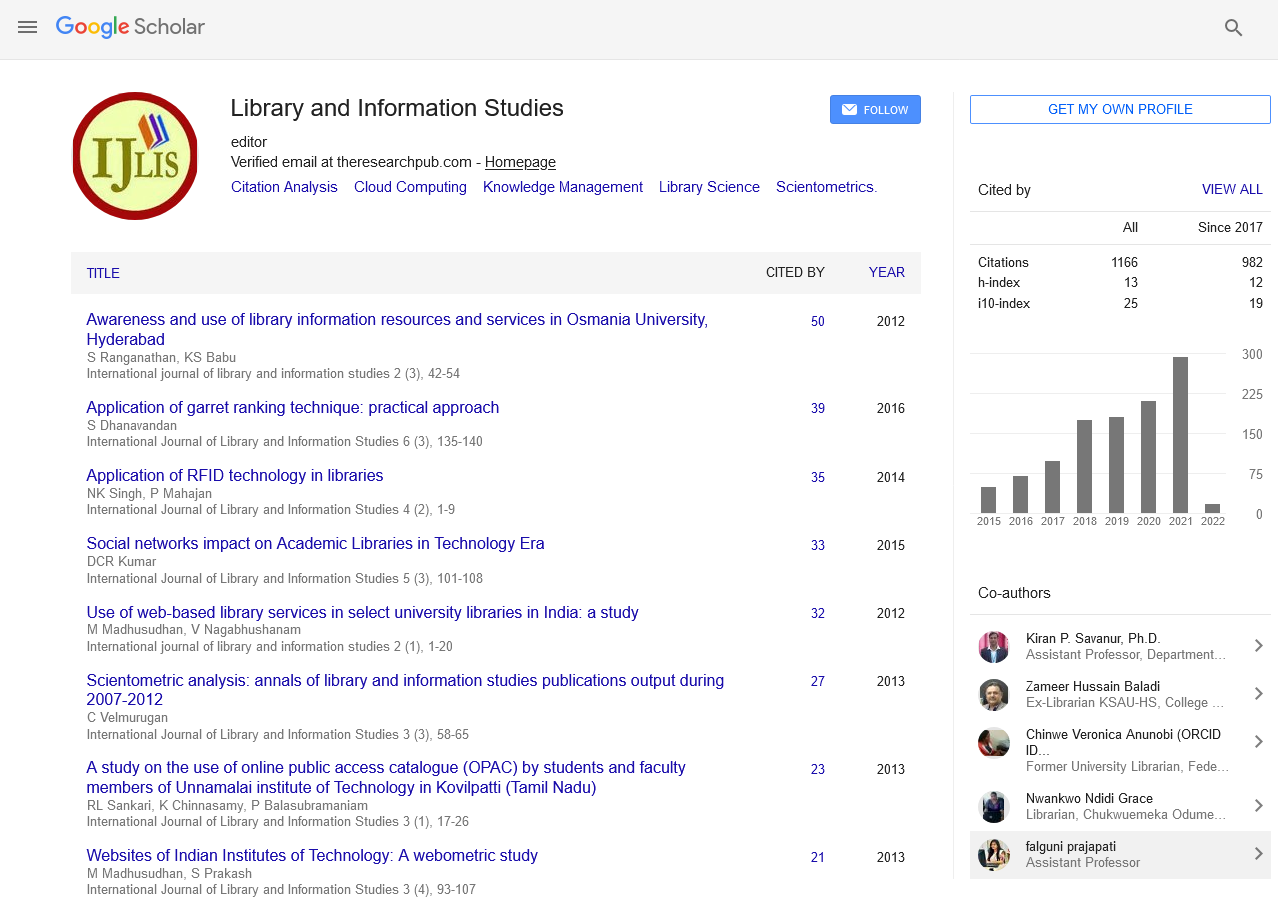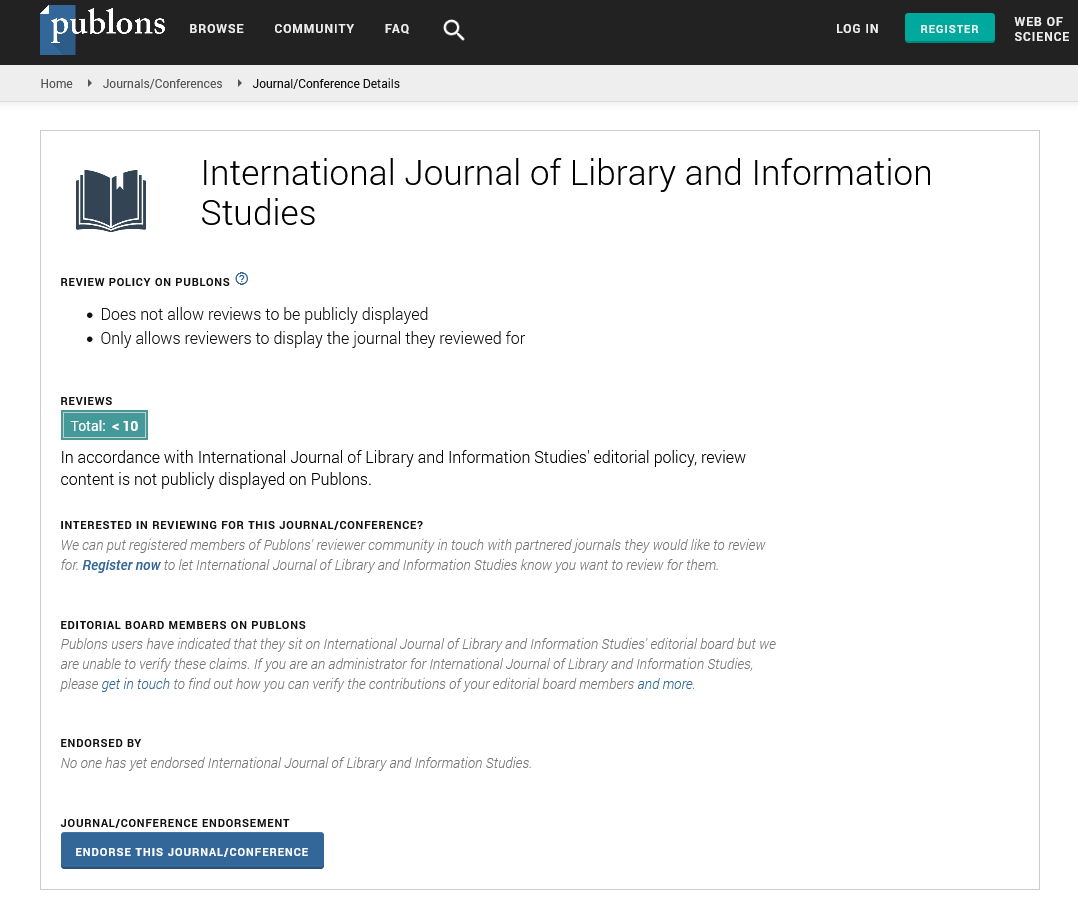

A Paradox: Library Scholars Not Using the Library Electronic Resource
Abstract
Author(s): Nomater Makozho, Mthokozisi Masumbika Ncube
The advent of electronic resources in university circles towards the end of the 20th century ushered a novel and fresh landmark for library patrons, as such resources offered timely and current sources of information. The Zimbabwe Open University Library also embraced such an innovation by providing varied electronic resources to its patrons. Information scholars within the university were, thus, expected to take a leading role in accessing and using such resources as it is within their scope and domain of study. However, contrary to such anticipation, their access and usage is low, disappointing, and fragmented. Therefore, the premise of this study was to investigate the reasons behind such low usage of electronic resources by these students through a case of the Zimbabwe Open University Midlands Regional Campus Library. Using the qualitative methodology, the study employed a multimethod approach. Expert and captive sampling techniques were used to select library staff members and students respectively. The study found that students in the Department of Library and Information Science mostly preferred the use of Google, the university modules, and social media platform as the major information sources. The study found that electronic resources offered through the library’s website were one of the list preferred information sources because of varied reasons, which included the website not opening, download delays, power outages in the library, digital illiteracy, information overload, complicated user interface and logging challenges. As a way forward, there are several ways of enhancing the usage of such resources, which include increasing the library’ bandwidth, regular update of the website, installation of uninterrupted power supply (UPS), provision of further information literacy training and advertising the electronic resources by the library.
Call for Papers
Authors can contribute papers on
What is Your ORCID
Register for the persistent digital identifier that distinguishes you from every other researcher.
Social Bookmarking
Know Your Citation Style
American Psychological Association (APA)
Modern Language Association (MLA)
American Anthropological Association (AAA)
Society for American Archaeology
American Antiquity Citation Style
American Medical Association (AMA)
American Political Science Association(APSA)



